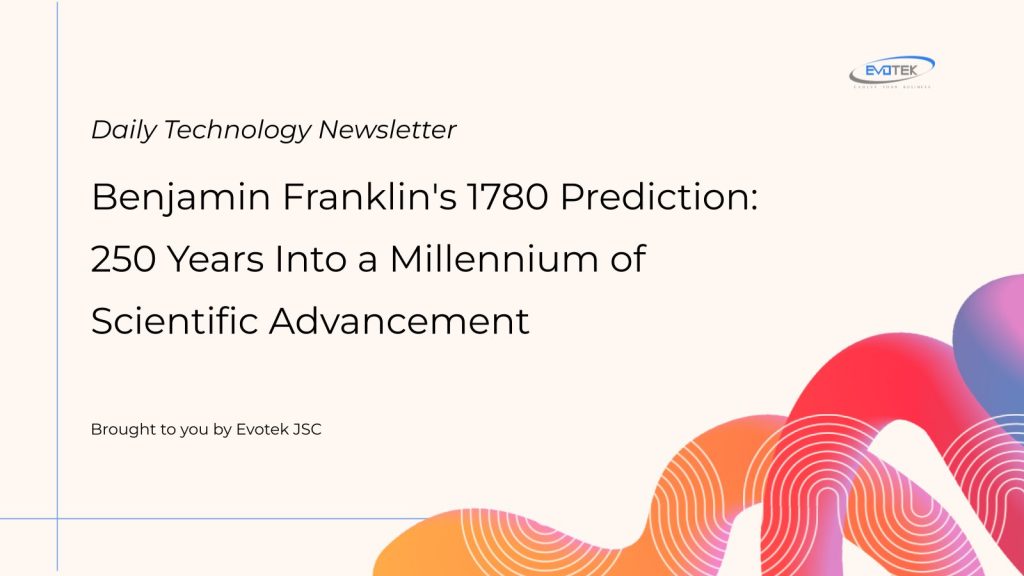In a letter penned on February 8, 1780, to the renowned English chemist Joseph Priestley, American polymath Benjamin Franklin articulated a vision of scientific progress so audacious it continues to resonate today. Observing the “rapid Progress true Science now makes,” Franklin lamented that he was “born so soon,” and then dared to imagine the world a full millennium hence, projecting an unparalleled surge in humanity’s command over the physical realm.
A Vision of Unprecedented Progress
Franklin’s remarkable foresight painted a picture of a future where human ingenuity would know few bounds. He predicted extraordinary breakthroughs, including:
- Mastery Over Gravity: Franklin mused about the possibility of learning “to deprive large Masses of their Gravity & give them absolute Levity, for the sake of easy Transport.” This audacious concept, penned centuries before the advent of air travel, speaks to a fundamental reimagining of movement and logistics.
- Agricultural Revolution: He foresaw a future where “Agriculture may diminish its Labour & double its Produce,” hinting at efficiencies and yields that would dramatically transform food production and sustain growing populations.
- Eradication of Disease and Extended Lifespan: Perhaps his most ambitious prediction, Franklin believed that “All Diseases may by sure means be prevented or cured, not excepting even that of Old Age, and our Lives lengthened at pleasure even beyond the antediluvian Standard.” This speaks to the modern quest for eternal youth and comprehensive health solutions.
As we stand approximately 250 years into Franklin’s projected 1000-year timeline, many of his seemingly fantastical predictions have either been achieved, are actively pursued, or conceptually form the bedrock of contemporary scientific research. While we haven’t achieved “absolute levity” for large masses or conquered old age entirely, advancements in aviation, agricultural technology, and medicine have profoundly reshaped human existence in ways he could only theorize.
The Unfinished Business of Humanity
Amidst his fervent optimism for scientific advancement, Franklin expressed a profound sense of regret regarding humanity’s moral shortcomings. He famously wrote, “O that moral Science were in as fair a Way of Improvement, that Men would cease to be Wolves to one another, and that human Beings would at length learn what they now improperly call Humanity.” This lament serves as a poignant reminder that while scientific and technological progress can redefine our capabilities, the evolution of human ethics and compassion remains an equally vital, yet often slower, journey.
The letter also touched upon more personal advice, with Franklin offering Priestley counsel on a professional dilemma, employing his characteristic “Moral Algebra” to weigh options. He illustrated his point with a vivid anecdote of leaving an uncomfortable sloop for a seemingly idyllic, yet ultimately mosquito-ridden and muddy, meadow—a metaphor for the deceptive allure of change without true improvement.
Benjamin Franklin’s correspondence with Joseph Priestley stands as a testament to his visionary intellect, not only in forecasting humanity’s incredible scientific potential but also in highlighting the perennial challenge of our moral and social development. His words from 1780 continue to prompt reflection on how far we have come, and how much further we still need to go, both in laboratories and in our hearts.

 日本語
日本語 한국어
한국어 Tiếng Việt
Tiếng Việt 简体中文
简体中文